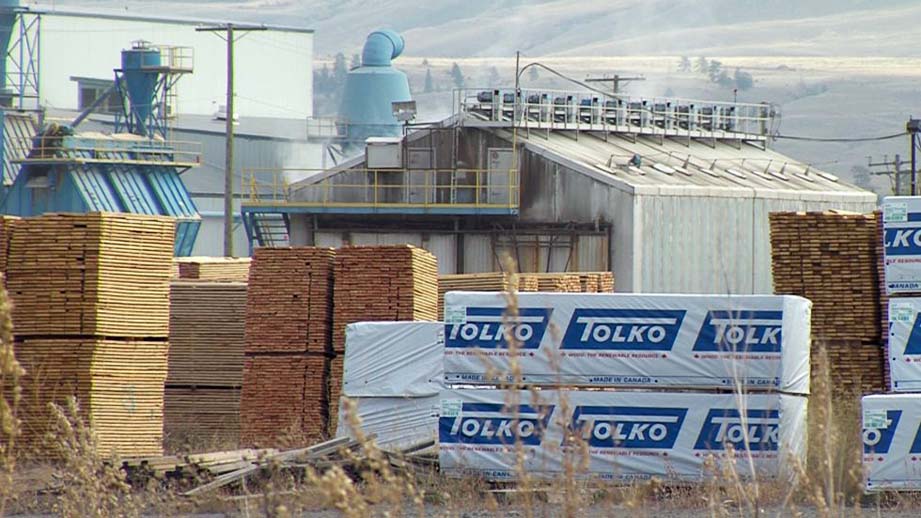
Gordon Steele won't be getting up and going to the office in Kelowna for much longer. Riverside Forest Products, the lumber company that has been in his family for generations, is about to be swallowed by rival Tolko Industries. It's the end of an era for one of the pillars of the forest industry in B.C.'s Interior.
Tolko said last week that more than 80 percent of Riverside shareholders have tendered their shares to its takeover bid, making the deal all but a formality.
The item was little more than a footnote in the financial press. That's too bad, corporate executives could learn a lot from the way Riverside conducted itself as it got forced into play.
A little review is in order. Riverside was trading in the low $20 range when, in late August, privately owned Tolko came in with a hostile bid of $29 a share. Not enough, said Mr. Steele, and the battle began.
Riverside stood a good chance of fending off its unwanted suitor. Management controlled 28 percent of the shares, and the bid looked pretty low. They probably could have just waited it out. Eventually, Tolko would have been forced to sweeten the pot or walk away.
Given the company's history, that might have even been the temptation. Riverside has deep family roots. Mr. Steele started with the company in 1965. Chief operating officer Gerald Raboch has worked in the lumber business since his father handed him the keys to the family sawmill in 1959, and with Riverside since the company was formed by merger in 1962.
The two men took the company public in 1992 and remained the largest individual shareholders. For much of its life as a listed company, Riverside faced some depressed conditions in B.C.'s forest sector. No sooner had the provincial government hit the sector with new stumpage fees than the economic meltdown in Asia sapped demand for B.C. lumber. Only recently did things turn for the better, and now Tolko wanted to take it away.
To their credit, Mr. Steele and Mr. Raboch didn't fight the obvious, and didn't try to save their own jobs at shareholders' expense. Instead, they went to work, and within six weeks found a white knight in International Forest Products (Interfor) willing to pay $39 a share. You know the rest, Interfor's deal flushed out a winning $40-a-share bid from Tolko. Mr. Steele is unemployed (not that he needs the work), the family company is gone, but Riverside shareholders are wealthier.
What's so remarkable about that? That's how it's supposed to work in the public markets, right? But look around you, and you'll see just as many examples where the insiders have dragged their feet or otherwise thwarted what's probably best for shareholders.
The Canadian markets are rife with family-controlled companies. That's often a bad thing for investors, but it doesn't have to be. All you need is someone at the top who understands who's really the boss. Riverside just proved it.
Derek Decloet.
(because there was no image with original article)
*2. Original news article image replaced.
(usually because it's been seen before)
under the provision in Section 29
of the Canadian Copyright
Modernization Act.










